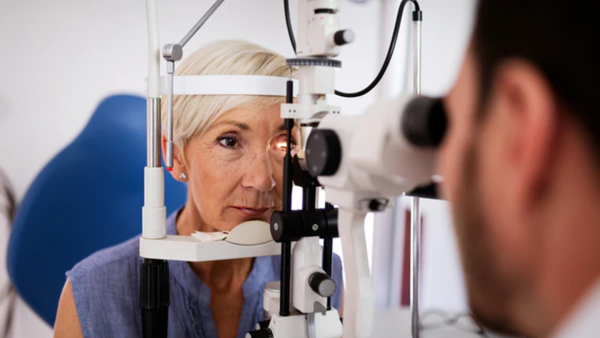In a healthy person, the heart beats about 60-100 times per minute in a regular rhythm. In the case of a cardiac arrhythmia, the heartbeat is either too fast, too slow or irregular.
Cardiac arrhythmias can have various causes. However, they are often associated with heart diseases that lead to cardiac arrhythmias.
The most common form of cardiac arrhythmia is atrial fibrillation: In atrial fibrillation, the heart chambers no longer contract in the correct rhythm. As a result, the heart beats too fast but still pumps too little blood.
IT'S WORTH READING!
AT THE END OF THE ARTICLE WE HAVE PROVIDED YOU A VOUCHER CODE.
In the case of cardiac arrhythmia, the transmission of signals in the heart is disrupted. It often occurs together with other heart diseases, such as myocarditis, heart failure and high blood pressure.
Symptoms of cardiac arrhythmias include fatigue, lack of energy, rapid heartbeat, shortness of breath, irregular pulse, dizziness and nausea. However, they can also go unnoticed.
Cardiac arrhythmias are treated with beta-blockers, potassium channel blockers, calcium antagonists and sodium channel blockers. Anticoagulant agents are often also used.
Nutrients that are important for the heart and are needed for signal transmission in the heart can support treatment.
Coenzyme Q10
Coenzyme Q10 is important for energy production in the mitochondria, the power plants of our cells. Since the heart beats around the clock, it needs a lot of energy.
In addition, coenzyme Q10 is an antioxidant that protects against oxidative stress and the resulting inflammation. Inflammatory reactions can promote cardiac arrhythmias.
The body can produce coenzyme Q10 itself, but production decreases significantly with age.
Supplementation with coenzyme Q10 can reduce the risk of atrial fibrillation in patients with heart failure. [1]
Magnesium
Magnesium is essential for the heartbeat. It is needed for signal transmission that causes the heart muscle to contract. A magnesium deficiency leads to changes in the excitability of the heart muscle cells, which can lead to cardiac arrhythmias.
Heart disease is associated with a magnesium deficiency. Magnesium can prevent and alleviate cardiac arrhythmias. [2] [3]
L-Carnitine
L-carnitine is an amino acid-like compound that is important for energy production: it is needed to transport fatty acids into the mitochondria, where fat is converted into energy.
But L-carnitine doesn't just supply the heart with energy. It also reduces oxidative stress and thus protects the heart from free radicals that can damage the heart muscle.
Although L-carnitine has not been directly studied in cardiac arrhythmias, its cardioprotective effects are well known. [4] It may help with many heart conditions that increase the risk of cardiac arrhythmias. [5] Studies suggest that L-carnitine may reduce the rate of cardiac arrhythmias after a heart attack or bypass surgery.

Potassium
Similar to magnesium, potassium is also important for signal transmission in the heart. Cardiac arrhythmia is a well-known symptom of potassium deficiency. [6]
The effectiveness of potassium in treating cardiac arrhythmias has not been well studied. However, potassium can help with other cardiovascular problems. It can lower blood pressure and reduce the risk of stroke.
If you have cardiac arrhythmias, your potassium supply should be checked. Supplementation is only recommended if your potassium level is low, as an overdose can also cause cardiac arrhythmias.
Omega-3 fatty acids
Omega-3 fatty acids are good for the heart. Due to their anti-inflammatory effect, they protect the heart muscles from inflammation. They also have a blood-thinning effect, making it easier for the heart to pump blood through the body. It is also believed that omega fatty acids can stabilize heart muscle cells.
It has been well researched that omega-3 fatty acids can support heart health. [7] Although the data on cardiac arrhythmias are conflicting, a good supply of omega-3 fatty acids is generally recommended.
Conclusion: Nutrient deficiencies can promote cardiac arrhythmias
The heart needs many nutrients to function optimally. If individual nutrients are lacking, heart problems are encouraged. A lack of nutrients that are important for energy production and signal transmission in the heart can increase the risk of cardiac arrhythmia. Particularly critical nutrients are magnesium, potassium, coenzyme Q10 and L-carnitine.
WE HAVE PROVIDED YOU WITH A 10 % VOUCHER FOR OUR Coenzyme Q10 ,Magnesium , L-Carnitine , Potassium and Omega-3 AND HOPE TO MAKE YOU JOY WITH IT.
SIMPLY COPY THE COUPON CODE HERZ+V10 AND ENTER IT AT CHECKOUT.
To the products
[1] https://journals.viamedica.pl/cardiology_journal/article/view/CJ.a2019.0022/47605
[2] https://pubmed.ncbi.nlm.nih.gov/27634841/
[3] https://pubmed.ncbi.nlm.nih.gov/16870070/
[4] https://pubmed.ncbi.nlm.nih.gov/28982550/
[5] https://pubmed.ncbi.nlm.nih.gov/23597877/
[6] https://www.ncbi.nlm.nih.gov/pmc/articles/PMC4816263/
[7] https://www.ncbi.nlm.nih.gov/pmc/articles/PMC3399517/pdf/nihms385378.pdf

















